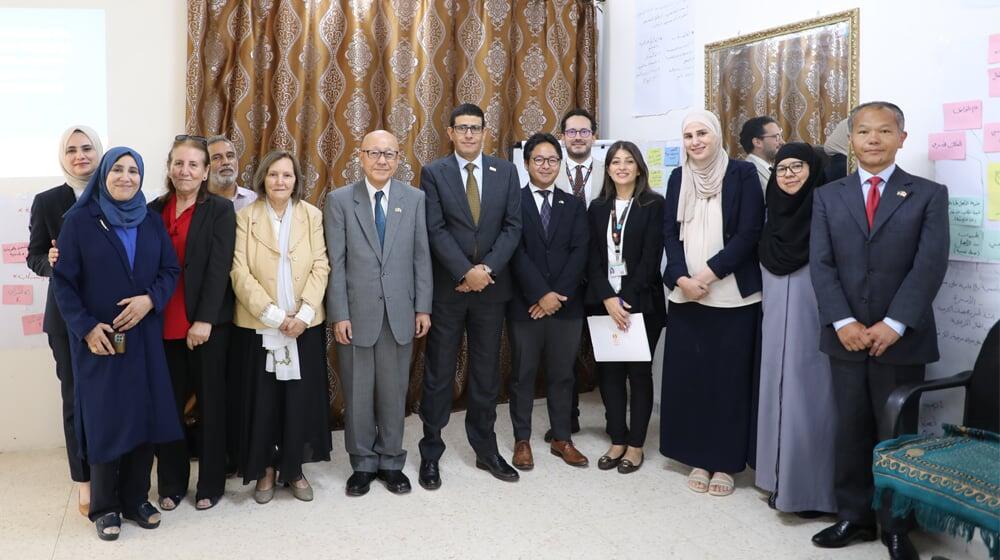Mafraq, Jordan – 20 May - UNFPA Jordan and the Embassy of Japan launched an important initiative today at the Jordanian Women’s Union in Mafraq Governorate. This project is designed to enhance social protection and provide access to justice for vulnerable Syrian refugees, continuing support thirteen years into the crisis. The initiative engages with the Ministry of Health, the National Woman's Health Care Center, the Health Care Accreditation Council, and the Jordanian Women’s Union to significantly contribute towards the sustainable development goals (SDGs) on gender equality and health.
Women and Girls Safe Spaces (WGSSs) are central to this project, offering specialized case management, psychosocial support, and recreational activities that are tailored by and for women and girls. These spaces provide confidential services and facilitate access to broader Gender-Based Violence (GBV) response services. An emphasis on inclusion, particularly for women and girls with disabilities, is a cornerstone of the initiative.
The project supports the provision of high-quality, comprehensive Sexual and Reproductive Health (SRH) services, which is enhanced through the implementation of Women Friendly Health Centers Programe which is a recognition program that acknowledges and incentivizes excellence in service delivery. This program focuses on integrating SRH services with health responses to GBV, ensuring a holistic approach to patient care. By recognizing and rewarding health facilities and professionals who excel in both SRH and GBV response, the program encourages best practices, fosters continuous improvement, and ensures that survivors of GBV receive the necessary support within SRH services. This integration not only improves the quality and accessibility of SRH services but also strengthens the overall health system's response to GBV, promoting a safer and more supportive environment for all individuals.
The project also includes a strong community outreach component, utilizing incentivized volunteers to raise awareness about GBV risks and services available, alongside a male-engagement strategy that promotes gender equality and accountability. It places special focus on adolescent girls and youth, providing targeted, age-appropriate services to address issues such as early, forced, and child marriage.
"We are proud to launch this pivotal project that not only addresses immediate needs but also works towards long-term resilience and empowerment of Syrian refugees, especially women and girls.” said Himyar Abdulmoghni, Country Representative of UNFPA Jordan. “Through the generous support of the Government and people of Japan and the strategic partnerships and integrated service delivery, we are committed to enhancing the dignity and well-being of the most vulnerable." He added.
In addition to raising awareness and providing direct services, the project aims to build the capacity of service providers through ongoing training and support, ensuring high-quality, survivor-focused care.
For his part, Ambassador Okuyama Jiro, the Japanese Ambassador to Jordan, emphasized the collaborative nature of this support saying: "This Japan-funded project supports UNFPA's efforts to improve the health and welfare of Syrian female refugees in Mafraq Governorate, a critical area due to its proximity to the Syrian border and the Governorate hosts the Zaatari refugee camp.” He added: "By prioritizing the safety, dignity, and overall well-being of refugees, which is central to the concept of “human security”, a key pillar of Japan's foreign policy, I hope we can create a sustainable path that addresses current challenges and builds resilience in the refugee community against future crises."
The project’s activities are designed to create a supportive environment that encourages refugees to seek and utilize crucial health services, which will not only benefit individual health and well-being but also enhance the overall public health and stability of the host community.


